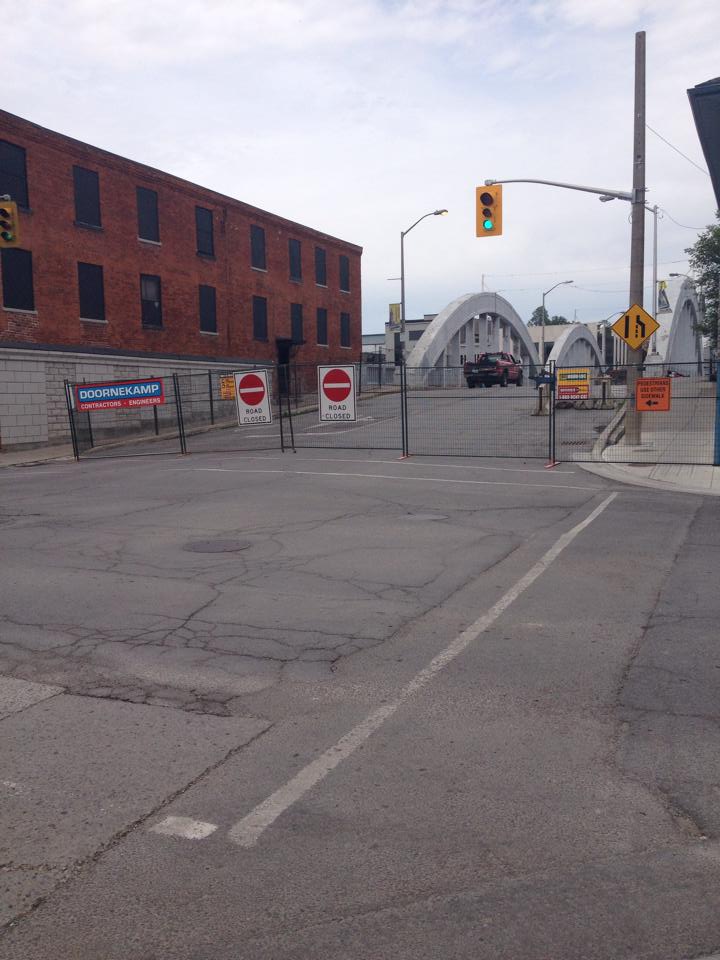 [1]
[1]Bridge Street will be closed between Coleman and Front streets until September, but nearby residents and businesses say they will not be affected. Photo by Courtney Bell.
By Courtney Bell
BELLEVILLE – Belleville drivers could face some inconvenience this summer due to the closure of the Bridge Street bridge for a $2.5-million rehabilitation project.
An investigation into the stability of the bridge began in May 2013 when concrete debris fell from the bridge, which is downtown between Coleman and Front streets.
Barry Simpson, the city’s senior manager for the project, said repair work began last November, but the damage to the bridge turned out to be more extensive than originally thought. By then it was too late to officially start the full rehabilitation project.
“It was determined that there was not enough time left in the year to complete the design and construction of all the deficiencies,” Simpson told QNet News by email.
“Obviously, it would have been more desirable to commence construction earlier in the year but that would also have introduced other complications such as dealing with the fact that no in-water work is permitted in the river prior to July 1 due to fishery restrictions,” he said.
The city did all it could to warn Belleville residents about the rehabilitation project through newspapers, local ads, the city’s website and social media, Simpson said.
The bridge was closed to vehicular traffic on Tuesday. One side of the bridge remains open for pedestrians to make their way between Bridge Street East and Bridge Street West. As for drivers, there are nearby alternate routes such as Dundas Street, North Front Street and Pinnacle Street, Simpson said.
Anne Schmitt, manager of St. Vincent de Paul thrift store located right beside the bridge, said she doesn’t expect the bridge closure will hurt business.
“We don’t anticipate it will affect us whatsoever,” Schmitt said. “Most of our walk-in customers will come in anyway.”